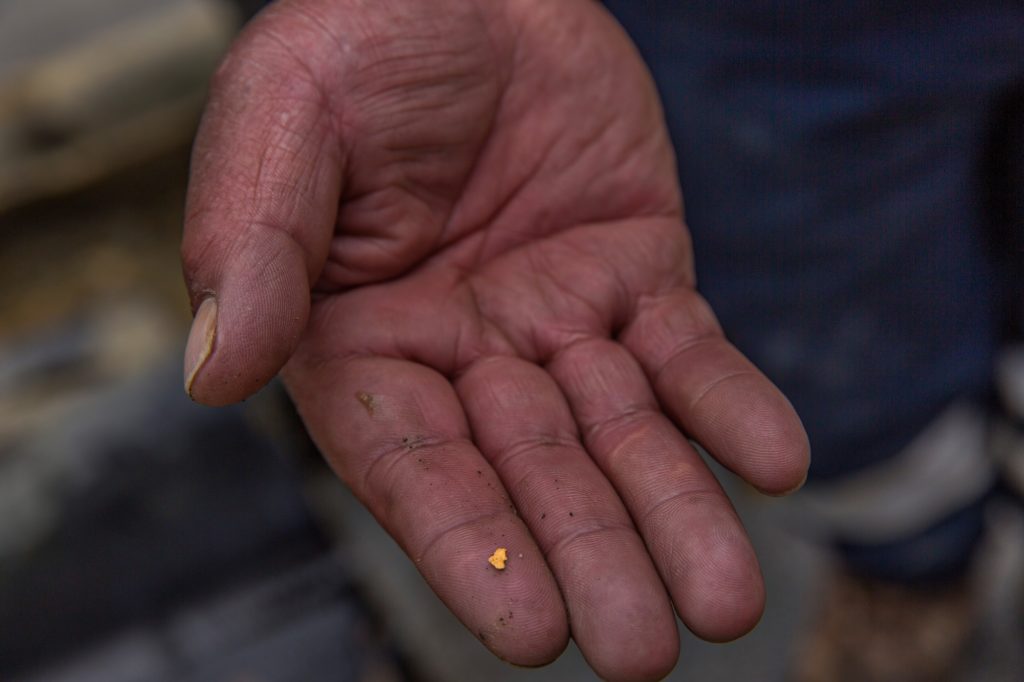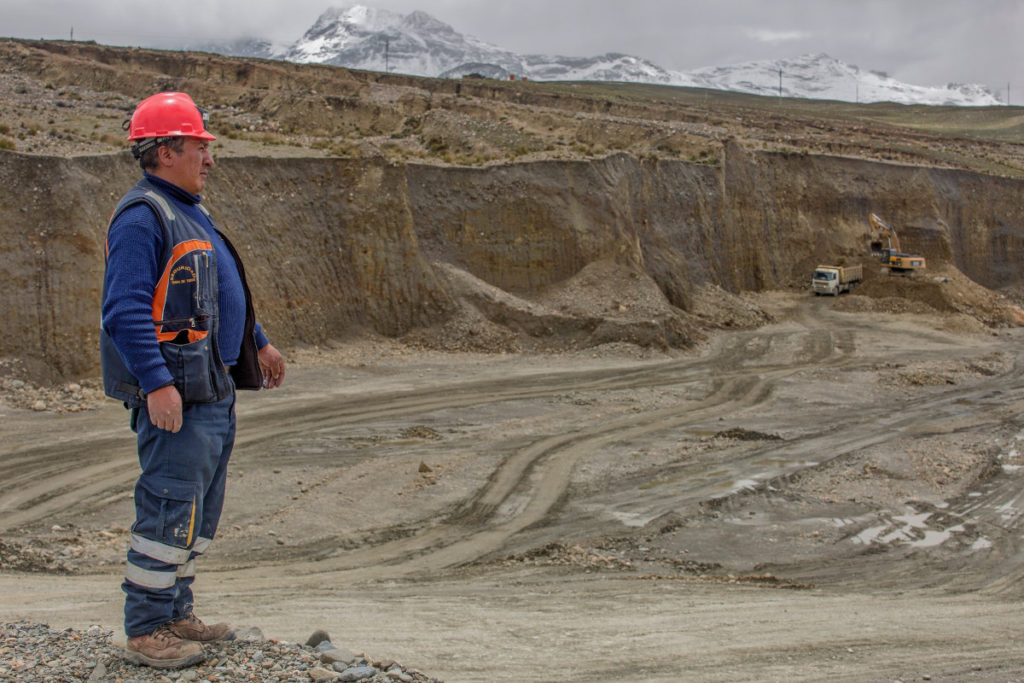by Mahsa Yeganeh, Supply Chain and Programme Manager at Fairtrade Foundation
Gold mining can have a significant impact on the environment. Find out how Fairtrade is supporting efforts to improve the environmental footprint of small-scale mining in Peru.
Peru, which has the fourth largest rainforest coverage globally, is at serious risk of deforestation and pollution by the extraction industry.
Around 10 to 15 million people depend on artisanal and small-scale mining organisations – accounting for 90% of the global workforce of gold mining.
Gold mining can have a significant impact on the environment
To find gold, miners cut down trees and native shrubs to set up sites where they can search the excavated soil for tiny golden flecks buried in sediment. These can only be captured using massive amounts of poisonous mercury, which is extremely damaging; it can lead to neurological conditions and birth defects as well as being harmful to wildlife.

Fairtrade is supporting nationwide efforts to improve the environmental footprint of small-scale mining, while also supporting miners to secure a fairer deal and improve their productivity.
For example, Peruvian Fairtrade certified mine Limata uses the Fairtrade Premium (the additional sum of money on top of sales) to restore their sites, revegetating land with flora and fauna.
This is where we live and where we are from, SO WE ARE VERY FOCUSED ON LOOKING AFTER THE ENVIRONMENT. THE ANIMALS AND THE PLANTS IN THE AREA ARE REALLY IMPORTANT TO US, AND THAT’S WHY WE CHOOSE TO SPEND OUR [PREMIUM] MONEY ON THE ENVIRONMENT.
EFRAÍN FLORES MARA, MINER FROM LIMATA
WE HAVE ALSO STARTED A PROJECT TO PROTECT THE ENVIRONMENT SO OUR GRANDCHILDREN CAN ENJOY THE AREA. WE DON’T WANT TO ABANDON OUR LAND…WE ARE THE OPPOSITE…WE LEAVE THE LAND THAT WE WORK ON AS WE FOUND IT OR BETTER IF POSSIBLE.
Choosing Fairtrade gold means contributing to the restoration of natural habitats, as well as the Fairtrade gold standard which assesses the use of chemicals and the management of waste.
Fairtrade supports gold miners to take a more responsible approach to increasing productivity and income
This also includes maintaining standards such as the efficient use of water and energy, and implementing actions to prevent, control and mitigate health and safety risks.
In Puno, Fairtrade offers training to support mine sites to comply with Fairtrade standards, which includes measures to make mine sites safer places of work. This is pertinent in an industry where many informal sites collapse whilst people are working there. They also enhance the performance of mines by facilitating access to finance for investing into new mining equipment and reducing the need to use chemicals.
In addition, our new programme, Responsible Peruvian Gold which is funded by the European Partnership for Responsible Minerals (EPRM), will focus on developing effective mercury reduction strategies, alongside exploring opportunities for increasing market access and market expansion.
Under the programme, mines are working towards using cleaner, more efficient mining equipment, such as gravimetric tables, that will enable mine sites to reduce reliance on mercury and enhance the recovery rates of gold. This will decrease the health risks to the miners and their communities while also reducing the negative environmental impact.
The Responsible Peruvian Gold Programme has already begun to share learnings, and trainings from the project have expanded to other mining regions in Peru, including the neighbouring region of Madre de Dios.
Find out more about the Fairtrade gold standard.
Images courtesy of Cooperativa Minera Limata Ltda.
